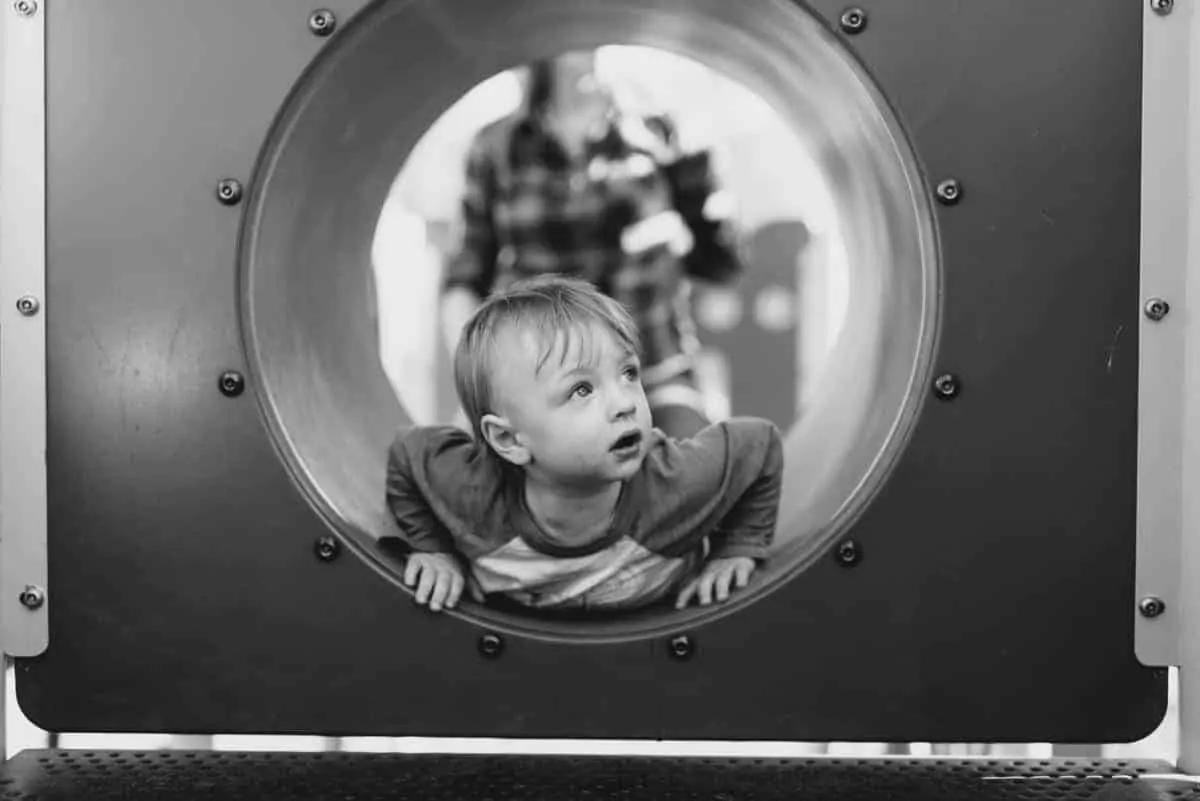— Researched and written by Dr. Sandip Roy.
As children, we all have natural drives to control ourselves and our environments, but this drive is not equal in all cases. While some children are strong-willed, others are not quite up there.
Willpower is the ability to control one’s actions, so it’s also called self-discipline or self-control.
“Willpower is the ability to resist short-term temptations in order to meet long-term goals.”
— American Psychological Association (APA)
Willpower is a vital trait for success in life. Science says increasing a child’s willpower can give them a better shot at success as adults.
But how do we increase a child’s willpower?
How To Build A Stronger Willpower In Children?

Here are some effective ways to build stronger willpower in children:
1. Give them small tasks and celebrate successes.
Begin with small, achievable tasks that require self-control, like cleaning their room, putting away toys, or finishing homework without distractions.
Celebrate every step of the way, no matter how small their accomplishments. It reinforces positive behavior and builds confidence.
Don’t overwhelm them with too big challenges, and remember to give breaks.
2. Let them grow autonomy and free choice.
Your biggest duty as a parent is to help your child grow into a self-supporting and self-disciplined person.
Stop being “helicopter parents” — making decisions for them, solving their problems, and constantly monitoring their activities and experiences. It erodes their sense of independence and self-confidence.
Give them choices, allow them to take risks, and let them handle little failures before jumping to help.
A simple thing like letting them choose their outfit or snack can empower them to make decisions and take ownership of their actions. This sense of control builds their self-motivation and willpower.
3. Teach them about delayed gratification.
Delayed gratification is the ability to resist the temptation of an immediate reward in favor of a larger, more rewarding benefit later on. It is a fundamental aspect of willpower.
Teach them this ability to wait for something. This teaches them to value patience, handle the anxiety of resisting impulsive urges, and work towards long-term goals.
Some examples:
- Let your child earn points or tokens for completing chores like making their bed, doing homework, or helping with household tasks. They can later redeem these points for a reward, such as extra playtime or a small treat.
- If your child wants a specific toy, instead of buying it immediately, help them save up for it. Give them a small amount of money for tasks or as an allowance, and encourage them to save it in a piggy bank.
- Engage them in long-term projects, like planting a seed and waiting for it to grow. This teaches them that some rewards, like seeing a plant bloom, take time and patience.
4. Encourage healthy habits and routines.
Regular exercise, sufficient sleep, and nutritious meals provide the basic physical and mental foundation for strong willpower.
Exercise with them so that they imbibe this healthy habit that can strengthen their willpower.
Healthy habits and routines create a sense of structure and discipline, making it easier for children to resist temptations and stay focused on their goals.
5. Model self-control yourself.
Children learn by observing the adults in their lives.
Some people think that children learn more by watching their parents’ behavior than by following their parents’ instructions.
Be mindful of your own behavior and show self-control in your daily interactions.
Show them how you manage your emotions and make responsible choices when faced with challenges or temptations.
Always remember to do yourself as you preach.
6. Use positive reinforcement.
Positive reinforcement, like praise and encouragement, is much more effective than punishment in building willpower.
One thing to remember — praise the effort more than the result.
Focus on acknowledging and rewarding children’s efforts, even if they don’t always succeed. This approach fosters a growth mindset and motivates them to keep trying.
“Trying harder is not sufficient by itself. That’s because it’s not how hard you try that leads to success; it’s how you try hard.”
— Sherri W. Fisher, a learning specialist, and Positive Education expert
7. Make it fun and engaging.
Turn willpower-building into a fun game or activity.
Train them to distract themselves from tempting situations that they know are harmful using posters, movies, and stories.
Use charts, timers, or even superhero metaphors to make the process more enjoyable and engaging for children.
This will help them stay motivated and see developing their willpower as a positive and rewarding experience.
8. Train them on problem-solving skills.
Encourage children to think through problems and come up with solutions. This boosts their willpower and enhances their critical thinking skills.
Here’s how you can do it:
- Encourage Independent Thinking: When your child has a problem, resist the urge to solve it for them. Instead, motivate them to think and come up with possible solutions. Ask questions like, “What do you think we could do about this?” or “Can you think of a few ways to solve this problem?”
- Brainstorming Sessions: Have regular brainstorming sessions to discuss various ways to solve issues. Ask them to figure out how to organize their toys better or more complex issues like dealing with a conflict at school. This helps them understand that one problem can have many solutions.
- Role-Playing Scenarios: Create hypothetical scenarios and role-play with your child. This can be both fun and educational. Try role-playing a situation where you (as a child) need to decide between doing homework now or playing, and doing homework later. Listen to their answers, discuss the consequences of each choice, and help them store that decision in memory.
- Teach Decision-Making Skills: Involve your child in family decisions where appropriate. This could be as simple as choosing the menu for dinner or planning a family outing. It helps them understand the decision-making process and its impact.
- Puzzle and Strategy Games: Engage them in puzzle games, strategy-based board games, or brainteasers to develop their problem-solving skills, thereby boosting their willpower.
- Reflect on Past Experiences: After a problem is resolved, have a discussion about what they learned from the experience. This reflection helps reinforce problem-solving skills and understand that challenges can be overcome with thought and effort.
9. Set clear expectations and consequences.
Set clear guidelines and follow through with agreed-upon consequences for certain behaviors.
Consistency in your actions teaches them the importance of self-regulation, the implications of their actions, and taking responsibility.
Some examples:
- Homework Routine: Set a clear rule that homework must be completed before screen time. If your child follows through, they can enjoy their favorite show or game. However, if they neglect their homework, the agreed-upon consequence could be losing screen time for that day. This teaches them the importance of prioritizing responsibilities.
- Tidying Up Toys: Establish a guideline that toys need to be put away after playtime. If your child cleans up as expected, they might earn extra playtime or a small reward. If they don’t, the consequence could be not being able to play with those toys the next day. This reinforces the concept of being responsible for one’s environment.
- Respectful Behavior: Set expectations for respectful behavior, such as not interrupting when someone is speaking. If your child adheres to this, acknowledge their good behavior with praise. If they repeatedly interrupt, the consequence might be a brief time-out to reflect on their behavior. This teaches them the importance of respect and listening.
- Healthy Eating Habits: If you’re trying to encourage healthy eating, you might set a rule that dessert is only available after eating a balanced meal. If your child eats their meal, they get the dessert. If they refuse to eat the meal, then they miss out on the dessert. This helps them understand the importance of healthy eating choices.
Don’t go overboard with restrictions and punishments. Ask for their opinions on how their actions should be dealt with. Give them a chance to reduce the punishment.
Never lose empathy or kindness.
10. Build a routine of mindfulness.
Mindfulness can increase self-awareness and impulse control in children.
Teaching mindfulness meditation to kids can be simple and enjoyable. Here’s a simple way:
- Find a Quiet Space: Choose a calm and comfortable area free from distractions.
- Start with Short Sessions: Begin with just a few minutes of meditation and gradually increase the duration.
- Focus on Breathing: Instruct them to pay attention to their breath, feeling the air move in and out.
- Gentle Guidance: If they get distracted, softly guide them back to focusing on their breath.
- Use Imagery: Make it fun by using imagery, like picturing thoughts as clouds in the sky.
- Keep It Positive: Ensure the experience is enjoyable and not forced, allowing them to learn at their own pace.
Activities like breathing exercises or simple meditation can help them learn to pause and make more deliberate choices.
The Willpower Of A Thousand Kids
In a groundbreaking study from New Zealand, researchers led by Terrie Moffitt, Ph.D., followed 1,000 children from birth to age 32.
They wanted to find out how these kids scored on self-control in their childhood, and how it changed their lives over the years.
The researchers observed the children’s real-world behavior and gathered reports from teachers, parents, and the children themselves at ages 3, 5, 7, 9, and 11. They found:
- Overall, the girls had higher levels of willpower.
- Children from well-off families have better self-control.
When the children reached 32 years of age, they found:
- Low self-control children were not more depressed than others.
- Poor self-control kids had higher risks of alcohol dependence and drug problems.
- Low self-control kids were battling financial difficulties and credit problems as adults.
- Children with poor self-control had greater criminal convictions, even after accounting for social class origins and IQ.
Overall, children with less self-control had worse health, less wealth, and more crime as adults. More remarkably, those who improved their self-control over time had better adult outcomes.
The study authors write, “Early childhood intervention that enhances self-control is likely to bring a greater return on investment than harm-reduction programs targeting adolescents alone.”

The Marshmallow Test
A child is presented with a marshmallow and given a choice: Eat this one now, or wait and enjoy two later.
The children who waited to receive the larger reward generally fared better in various life outcomes, such as academic achievement and health, in the years that followed.
The findings of The Marshmallow Test and subsequent follow-ups suggest that while willpower and self-control are not entirely pre-wired, and can indeed be taught and developed.
Walter Mischel’s study shows that a greater ability to delay gratification can predict higher SAT scores, better social and cognitive functioning, a healthier lifestyle, and a greater sense of self-worth.
Books To Read:
- The Effort Myth: Sherri Fisher‘s positive education book on how to help your children work at working hard, to get maximum success.
- Grit for Kids by Lee David Daniels: A practical guide for parents to nurture grit (passion, perseverance, and willpower) in their children. Offers 16 actionable steps to help kids discover their passions, set goals, overcome challenges, and build self-confidence.
- Willpower by Roy F. Baumeister and John Tierney: Explores the science of willpower and its crucial role in various aspects of our lives. Discusses common willpower myths and provides strategies to strengthen self-control.
- The Willpower Instinct by Kelly McGonigal: Focuses on the positive aspects of willpower, framing it as an evolutionary tool for resilience and self-improvement. Explains how stress can undermine willpower and offers practical tips for managing stress and boosting self-control.
- How Parents Can Teach Children To Counter Negative Thoughts by Frank Dixon: A guide for parents to help their children challenge negative thoughts and cultivate resilience. Provides strategies for identifying and managing self-doubt, anxiety, and negativity in children.
- The Whole-Brain Child by Dr. Daniel Siegel: Helps understand and support children’s brain development, including strategies for managing emotions and fostering self-control.
Willpower And Success
Willpower is the most decisive element of goal achievement. Without willpower, you can go through your routines and still not reach your goals.
Roy Baumeister, a Professor of Psychology at Florida State University, lays down four steps for success:
- Having Desire/Motivation
- Setting Clear Goals
- Checking Progress
- Exercising Willpower
Without willpower, it is unlikely that you will achieve success, even if you practice the previous three steps like a programmed robot.
Sociologists Travis Hirschi and Michael Gottfredson in their General Theory of Crime say that low self-control is the main cause of criminal behavior.
Final Words
Children with strong willpower persevere through challenges, resist temptations, and achieve their goals. They are more successful in academics, personal growth, relationships, and emotional well-being.
On the flip side, kids with low willpower could have adult-life problems in the financial, health, and criminal domains.
But we can also change their future by helping them build strong willpower. As a parent, be patient and supportive, and see them grow more self-disciplined.
√ Also Read: Sherri Fisher: ‘Trying harder is not sufficient by itself’
√ Please spread the word if you found this helpful.
• Our Story!

